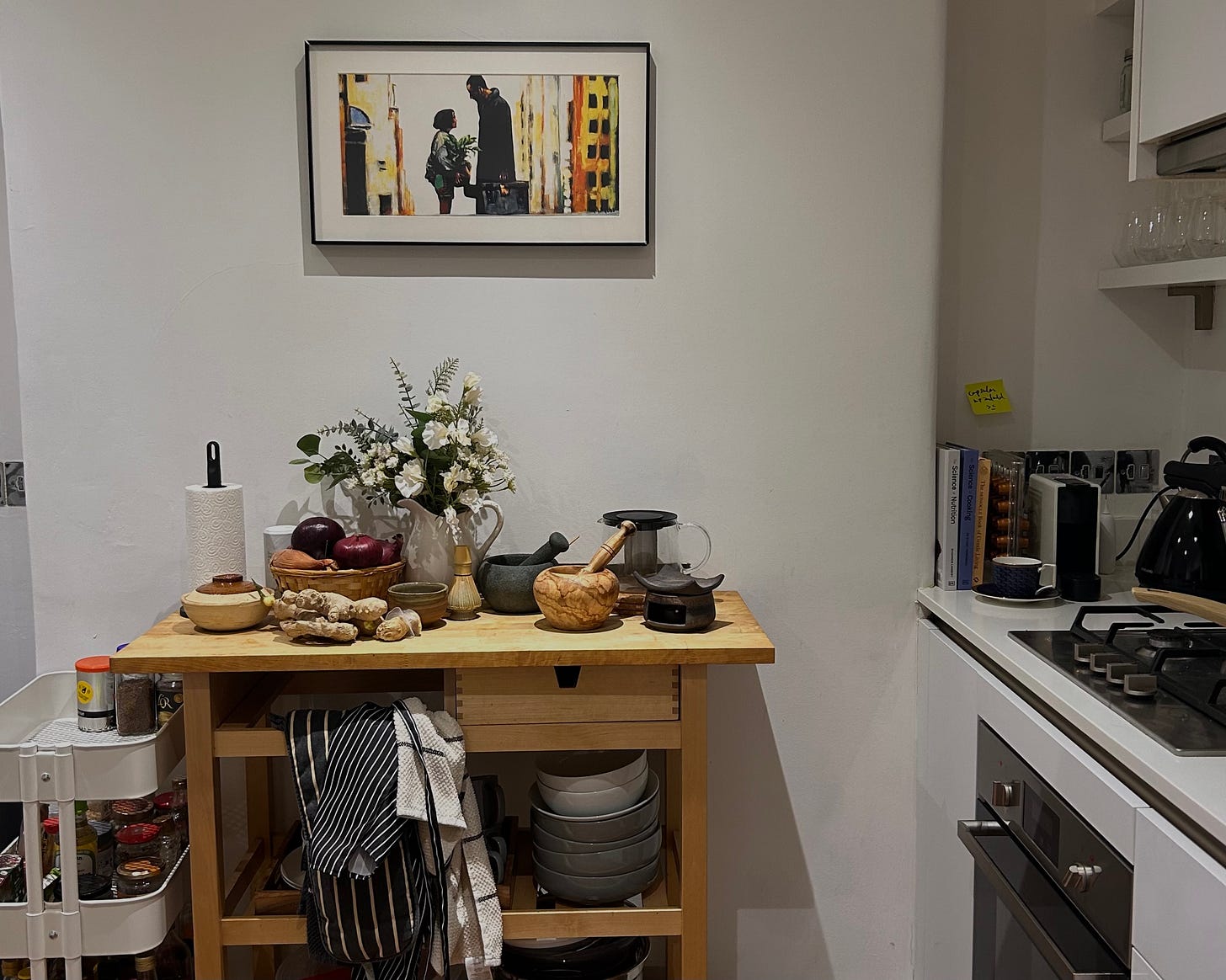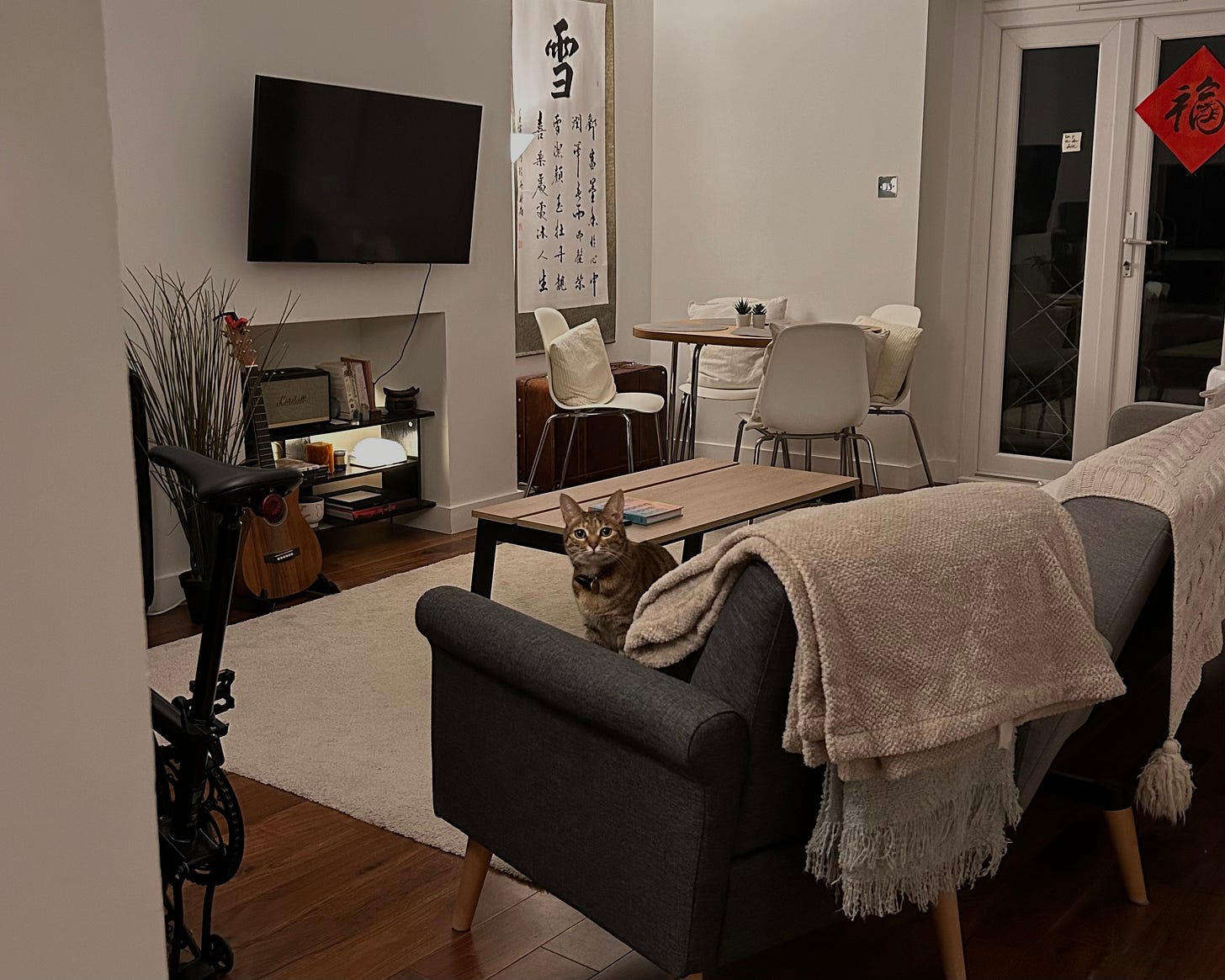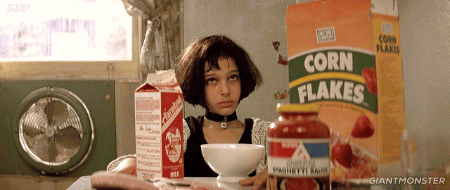I don’t have it all together.
Switching costs aren’t just for software.
“My grandmother never throws things away, and now I’m struggling to throw things away too.”
I said, as one of the overloaded plastic bags split under the weight, spilling a mess of half-used things I’d grabbed from the kitchen drawer across the floor.
“They’re always like that.”
Moving gets harder the further along you are in life. Each year adds more weight. Books, furniture, memories, habits. Roots grow deeper with every season, drinking in more water and nutrients. To move means tearing at those roots. It gets more painful each time.
This time, it was particularly painful.
A few months ago, I almost moved to Paris for Station F. I loved the ecosystem, the density of founders, ideas, and energy that’s hard to find anywhere else. Paris carried the same magnetism that once drew me to Shanghai: a bridge between tradition and newness, a pride in its arts and culture.
Let’s not forget, Shanghai is often called the Paris of Asia. Before London, I lived in the French Concession. No wonder I found comfort on roads lined with French plane trees.
“I can sleep, work, and eat at the same place. It’s amazing.”
I told my friends.
In Paris, everything tech and AI-related seemed to orbit around Station F. People and events came to you. They even had an accommodation program you could apply for, plus decent restaurants on campus. My gay best friend lived there, and I could picture my mother being happy in Paris in a way she never would be in London.
Paris also felt like a place where I was less torn between the US and China. At VivaTech, its flagship tech event, you could see Jensen Huang, founder and CEO of NVIDIA, and Joe Tsai, co-founder and chairman of Alibaba, all sharing the same stage. And of course, France had its own champion: Mistral AI.
A friend of mine, a venture capitalist, pushed back. He told me I’d have a better success rate in London, and even more so in SF.
My British public affairs contact put it even more bluntly:
“They’re French at the end of the day.”
I often think the way British people value grit, stoicism, and determination goes back to their “Blitz Spirit.”
“It seems like British people have a hard time letting go of the past.”
I joked to my friends once. But so does the culture I grew up in.
Maybe being torn between Britain and France was really about being torn between my grit and my rebellious streak.
In the software business, we often talk about switching costs. Moving from one system to another almost always means a drop in productivity at first. It takes time, money, and effort to adjust.
Moving to a new city, or even just a new home, is exactly the same.
And layered on top of switching costs is the sunk cost fallacy: the more we’ve already invested in the home, relationships, routines, the harder it feels to walk away, even when we know it might be better for us.
Each time, it means breaking old patterns, letting go of part of our identity in order to make space for new ones.
My decision to leave West Hampstead was a strategic one: I wanted to increase my agility, to stop my own roots from growing too deep.
If Station F taught me anything, it’s that quick decisions get harder when you’re carrying too many costs. Two cats, a full kitchen, and an Airbnb business in London made it impossible to treat moving as a reversible decision.
Yes, the move was strategic. But that doesn’t mean it wasn’t painful.
It felt like an acceptance: finally letting go of the future I once imagined, and of the investment I’d poured into a place that no longer carried the promise it once did.
We give meaning to the things we own. We convince ourselves that our belongings define where we belong.
Each piece of occasion wear carries the memory of a graduation, a birthday, a wedding. Maybe what’s hardest to let go of isn’t the thing itself, but the people we can no longer hold onto.
“I grew up yearning for so many things I could never have, so now I don't hold back at all.” — When Life Gives You Tangerines
As I navigated my career, I filled my wardrobe as if I were compensating for the childhood I never had. But no matter how many bags or shoes we collect, nothing can erase the feeling of being that child who had to settle for less.
My grandmother has lived 90 years. I have lived 30. My wardrobe is far larger than hers. Any additions to her closet were bought by my father, my mother, or me.
I remember how scrappy she was raising me, cutting my hair in ways I never liked, repairing our old clothes, and handing me second-hand dresses from my older “village sisters.” As competitive as I was, and still am, it’s easy to guess how much I hated it.
She doesn’t own much. But what she does own, she doesn’t easily let go of.
Maybe, in some way, holding on to things is her way of holding on to the people who are gone. I can’t imagine what it’s like to live 90 years and say goodbye, again and again. One friend after another. One family member after another.
Similar to the Brits, the culture I grew up in is also about holding on to the past. We worship our ancestors and honor what’s in our blood, our roots. My grandmother cares more about keeping rituals alive than about what she wears.
Many years have passed, and I’ve grown used to traditions that might seem strange to others. One day I asked a question I’d never thought to ask before:
“Why do you care about all these rituals so much?”
“It’s for you. I want our ancestors to look after you and keep you safe.”
What she doesn’t know is that I ride my bike around London without a helmet, and I’ve walked away from more than a few risky, dangerous situations.
Sometimes I think I survive them only because my grandmother asks the ancestors to protect me every day.
Moving, and downsizing, was also a reminder to myself that I can’t do it all alone.
Another trait I picked up from my grandmother, one that hasn’t served me well, is the reluctance to seek help. From the outside, people were impressed: a sponsored running event with 250+ RSVPs, an AI fintech startup launch that drew 600K+ impressions, always finding momentum whenever I had a clear goal in mind.
But what people didn’t see was how easily I could burn myself out. I worked until I forgot to eat.
Even though I lived just minutes from Hampstead Heath, I never managed a swim in the pond during summer. That will always be a small regret.
At least now, I’ve finally come to the realization that I don’t have it all together. None of us do. And that’s exactly why we need people around us.
Maybe the troublemaker my grandmother once saw has finally chosen grit.




